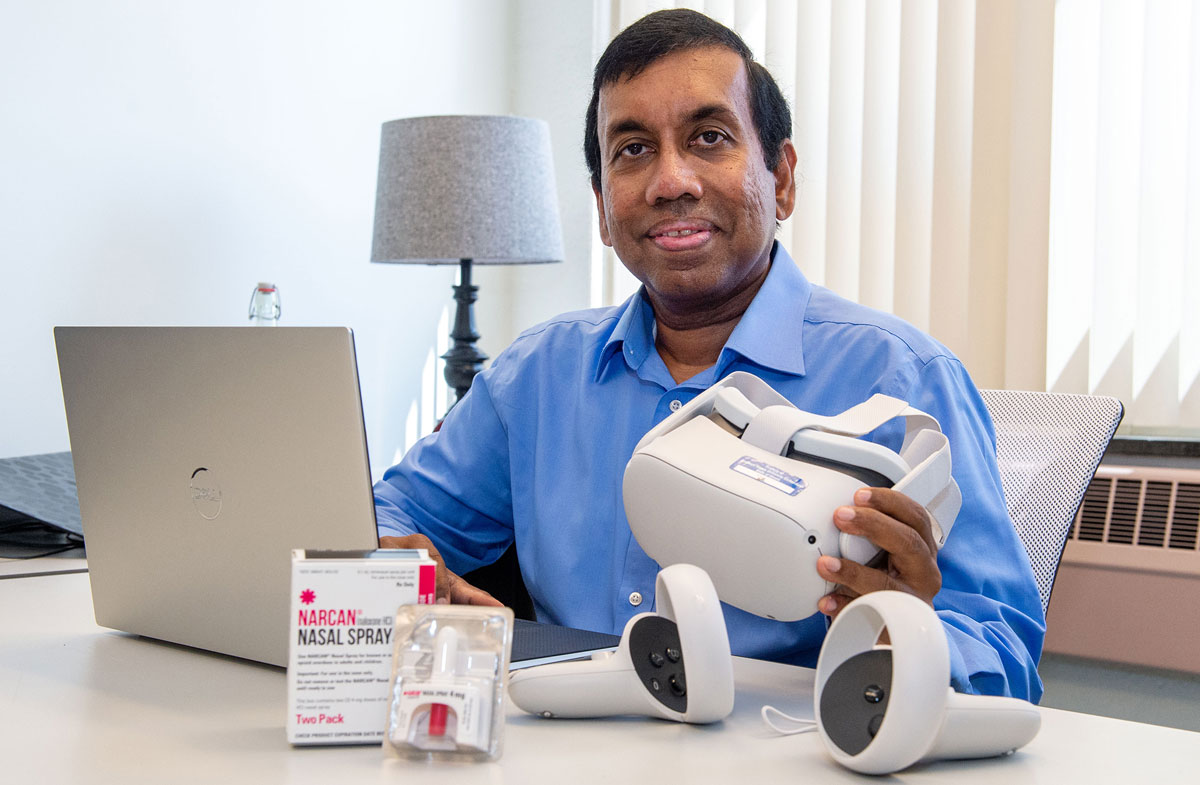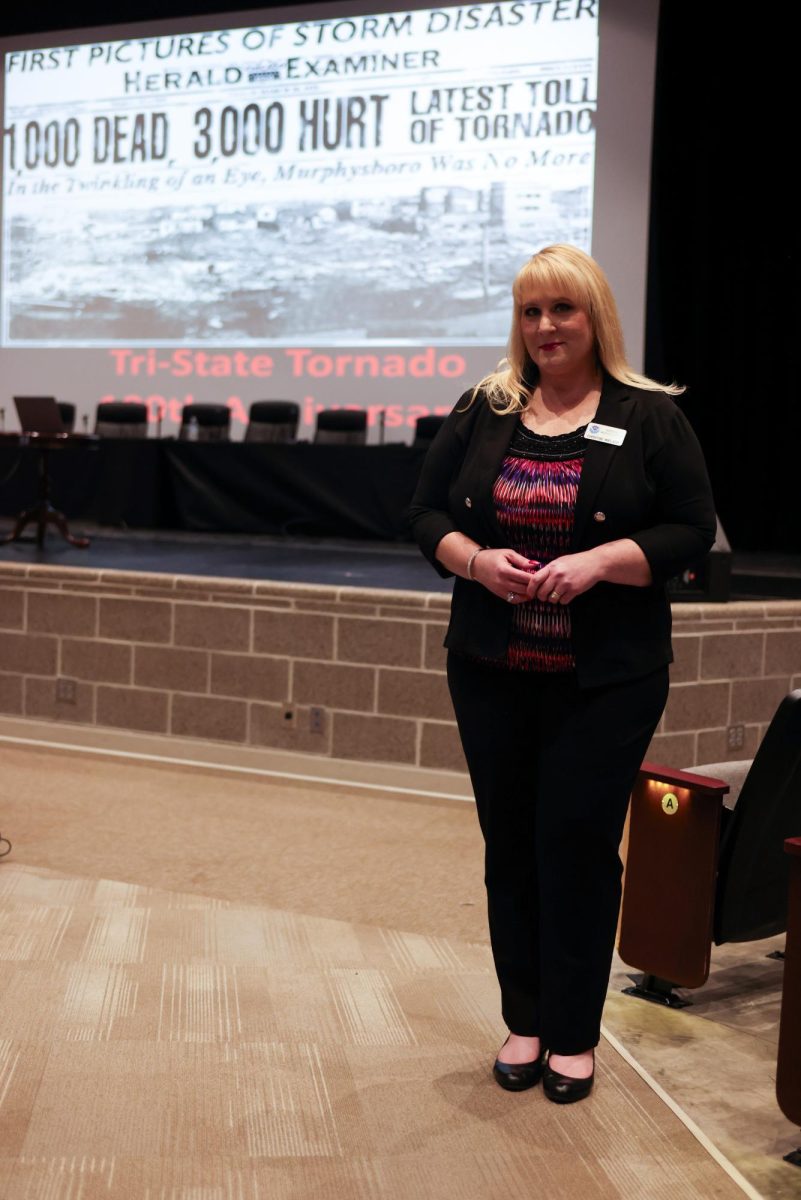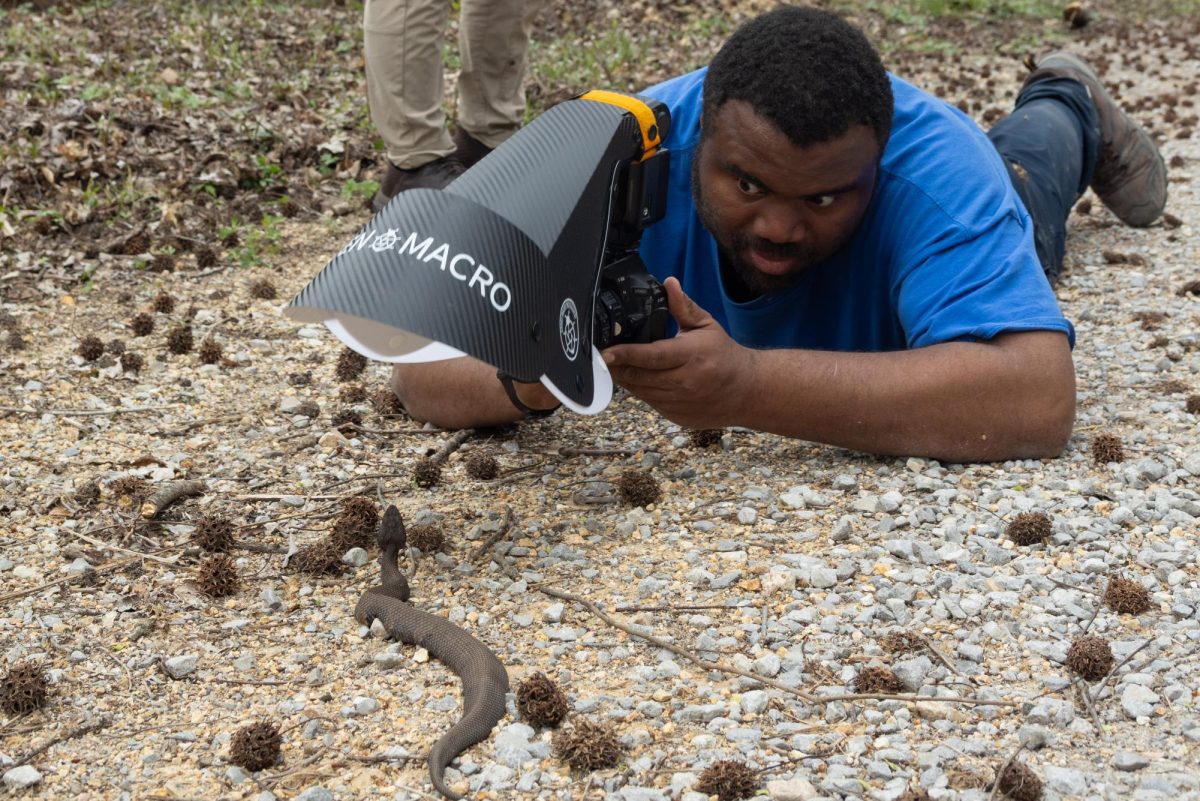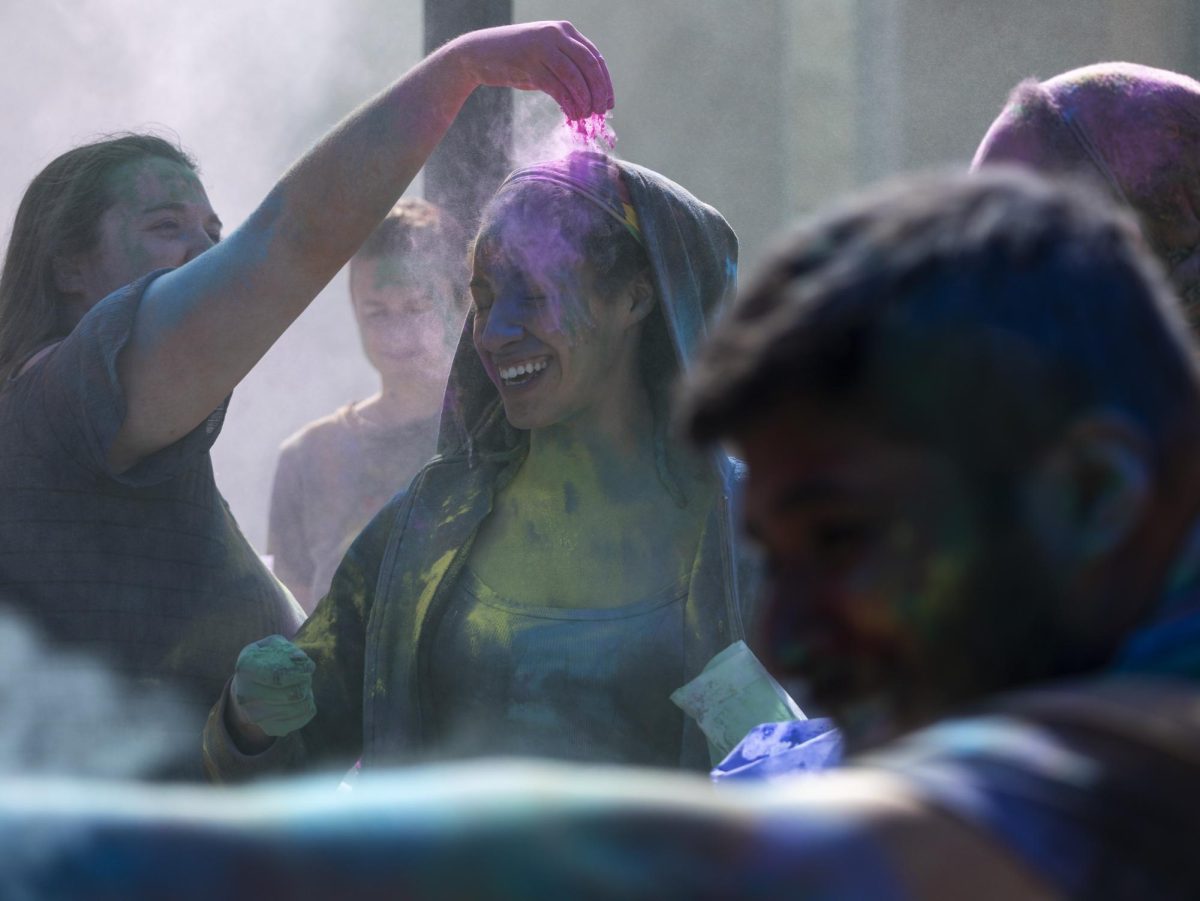An assistant professor at Southern Illinois University is trying to make it easier to be a good samaritan when someone is overdosing on opioids. To help first responder medical personnel and even just your average citizen, he is creating a virtual reality training ground.
“We can bring that environment to the person. So that they feel familiar with it,” Wasantha Jayawardene said. “Have that immersive experience and when they are there in real life they can draw upon their memory.”
He said he first began trials with this concept while working as a principal investigator of a study funded by the National Institute of Drug Abuse (NIDA).
Advertisement
“What we realized from that training is that, although they gain knowledge and skills, there is some anxiety and panic associated with handling a real-life situation,” Jayawardene said. “This is how I started thinking about virtual reality because that can take them to a real-life situation during the training.”
According to the NIDA, opioid overdoses doubled from 2010 to 2017 and increased steadily until 2019. There was a notable increase in overdose deaths reported, with 68,630 deaths in 2020 and 80,411 deaths in 2021.
“There are new operators coming to the market,” Jayawardene said. “Illegal opioids like fentanyl, and there may be more, and people are mixing these drugs and using them and they cannot break the reaction when they mix drugs.”
The medicine naloxone is administered during opioid overdoses to break down the overdose reaction. According to the NIDA, the medicine attaches to the opioid receptors in the body, blocking the effects of the opioids.
With the projects he’s currently working on, they’re using mixed reality, meaning virtual parts from the training will mix in with the physical environment around them.
“This way people will be able to see and interact with the virtual objects simultaneously [and] they will also be able to see their real-world surroundings,” Jayawardene said. “We plan to avoid feelings of isolation that can occur when they’re completely in a virtual environment and also avoid feelings of anxiety and panic that can occur when they are in a physical environment.”
Jayawardene said virtual reality training could be useful in places that are hot spots for opioid overdoses with not much naloxone available.
Advertisement*
He’s working on this project with a colleague from the School of Human Science, Dr. Justin McDaniel, as well as professors from Illinois State University, Indiana University, and OSF Healthcare.
Jayawardene said the technology they’re currently using is not finalized. The initial proposal was to get the Meta Quest VR Headset which ranged from $300 to $400 until Apple announced the Apple Vision Pro averaging $3,500.
“We need just one device for our program because we can use it on many people,” Jayawardene said. “Now we know what we are doing and what technology we are using. Illinois State University will be developing the VR part, mixed reality with little help from us.”
Going into the next year, Jayawardene said the researchers will be field-testing the prototype in urban and rural communities in various demographics and education levels.
“Fifteen laypeople, laypersons and fire experts, doctors, nurses, officers,” Jayawardene said. “We get their feedback and update the prototype. It will be conducted back and forth several times until we get a reasonable training module.”
The team is seeking additional funding in the future for a more randomized control trial, recruiting people in the community and randomly signing them up for traditional training while putting some in the VR training to compare, Jayawardene said.
“If there is a statistically significant difference, then we can say this is more effective,” Jayawardene said. “[Then] it’s worth doing it and adding it to programs like health departments, nongovernmental organizations, and non-profit organizations that are doing it.”
Jamilah Lewis can be reached at jlewis@dailyegyptian.com. To stay up to date with all your southern Illinois news, follow the Daily Egyptian on Facebook and Twitter.
Advertisement























